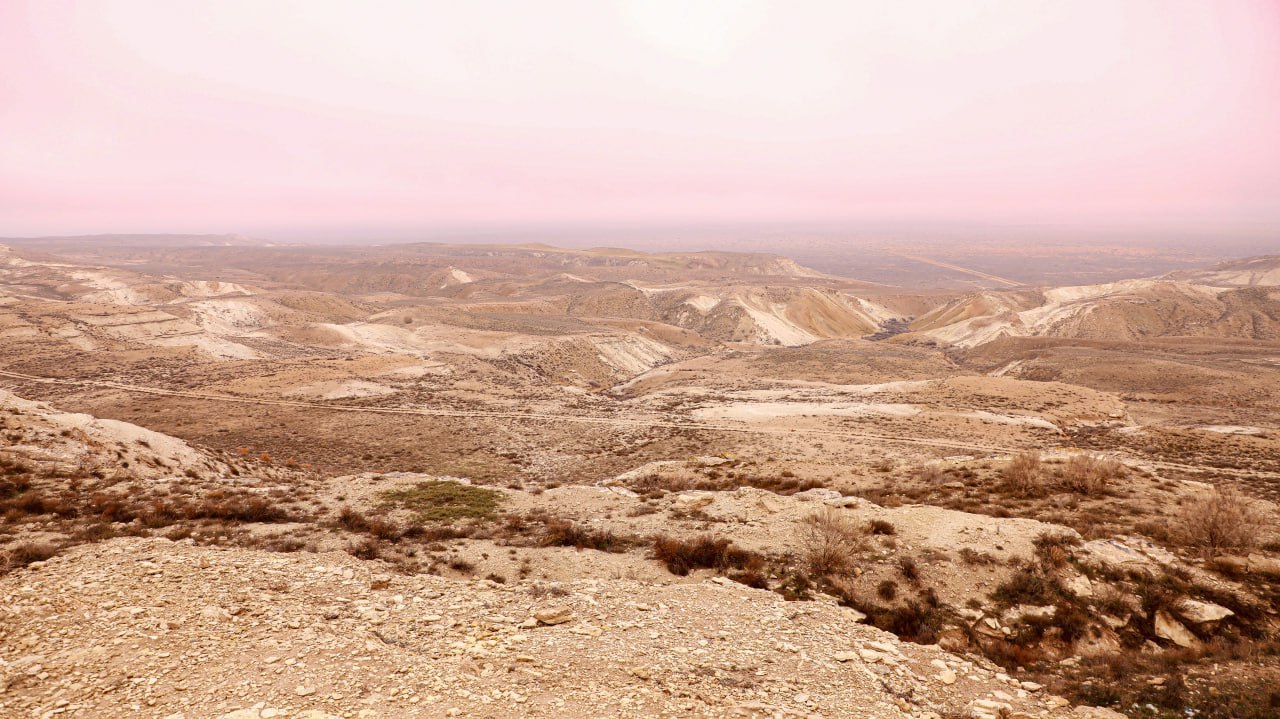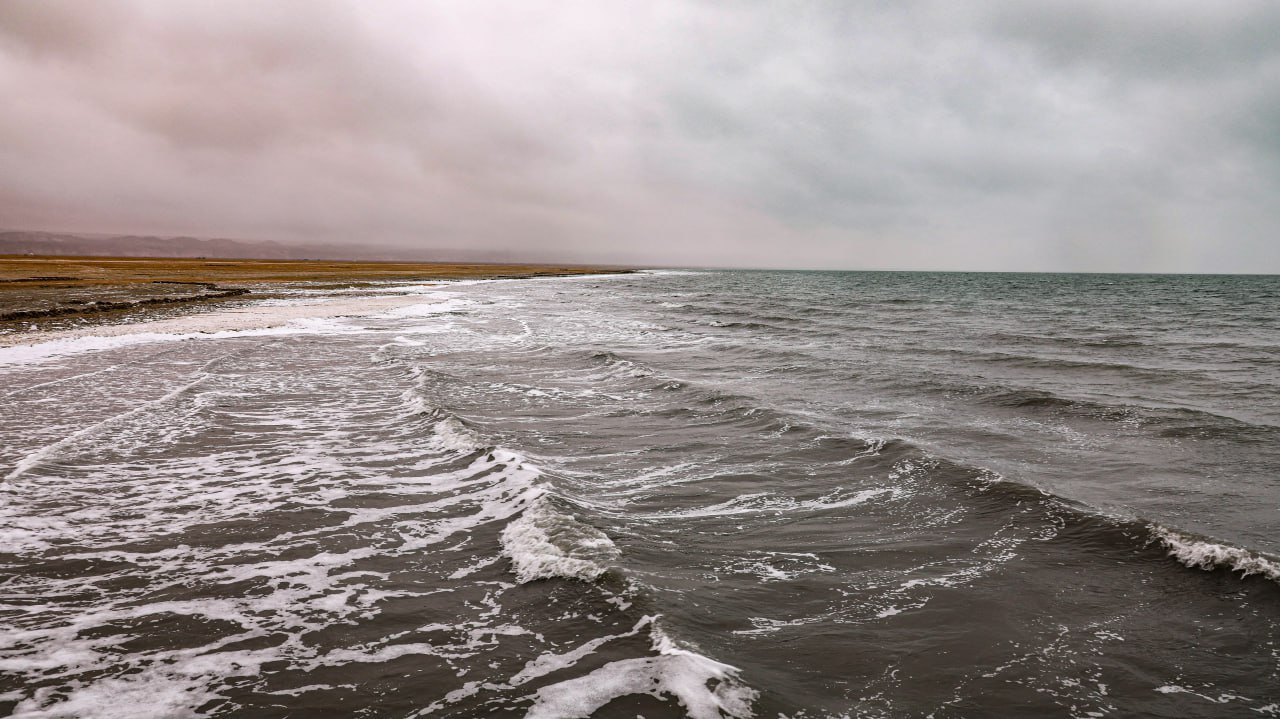 Climate change, environmental degradation and global warming are among the main challenges of the 21st century, negatively impacting the well-being of millions of people. Having deeply analyzed the current situation, the leaders of the Central Asian countries have identified the Aral Sea crisis and the prevention of its ecological consequences as one of their top priorities since the first days of independence.
Climate change, environmental degradation and global warming are among the main challenges of the 21st century, negatively impacting the well-being of millions of people. Having deeply analyzed the current situation, the leaders of the Central Asian countries have identified the Aral Sea crisis and the prevention of its ecological consequences as one of their top priorities since the first days of independence.
Following a comprehensive discussion of large-scale goals of regional cooperation, the heads of state emphasized that water resources play an important role in the sustainable development of Central Asia. Collaboration in transboundary water management is an essential component for ensuring peace, environmental, food and energy security, protecting public health, reducing migration processes and addressing climate change.
As a result of consistent measures taken by the government of the Republic of Uzbekistan in recent years, tugai forests have been created on the bottom of the dried-up Aral Sea on an area of 1 million 850 thousand hectares. In difficult natural conditions, approximately 6 thousand tons of desert plant seeds have been planted. For these purposes, 20 thousand jobs have been created, 5 thousand units of equipment, including airplanes, have been involved. Currently, work is being carried out on an area of 200 thousand hectares, more than 2 thousand tons of desert plant seeds have been prepared. The country is implementing a program for the annual planting of 200 million trees and shrubs.
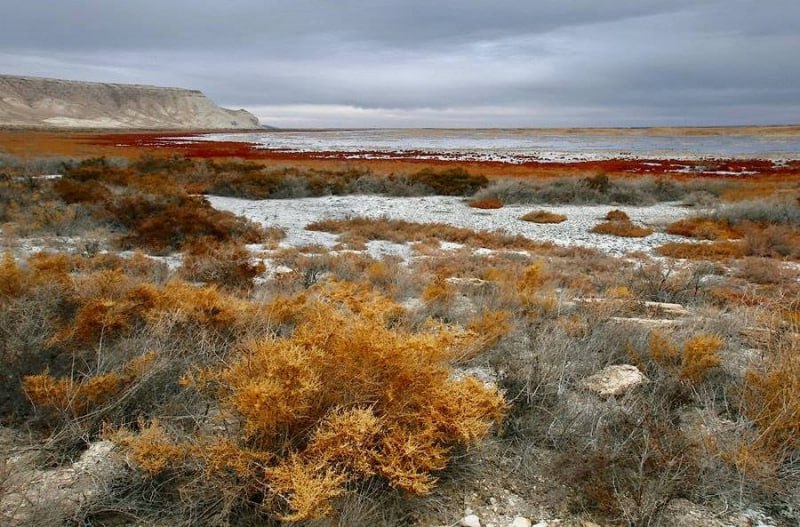 In light of the President of the Republic of Uzbekistan declaring 2025 as: "The Year of Environmental Protection and the "Green" Economy", a number of measures have been developed to support the State Program.
In light of the President of the Republic of Uzbekistan declaring 2025 as: "The Year of Environmental Protection and the "Green" Economy", a number of measures have been developed to support the State Program.
From March 23 to 24, 2025, a car rally titled "Visit to the Aral" was organized in the Muynak district of the Republic of Karakalpakstan. At the symbolic site of the lost Aral Sea, the "Ship Graveyard," participants staged a vibrant flash mob that highlighted the importance of environmental awareness. They traversed the green zone on the dried-up bed of what was once a vast sea, driving along the picturesque canyons of Ustyurt. Each participant became a part of a collective mission aimed at drawing attention to the fate of the Aral Sea.

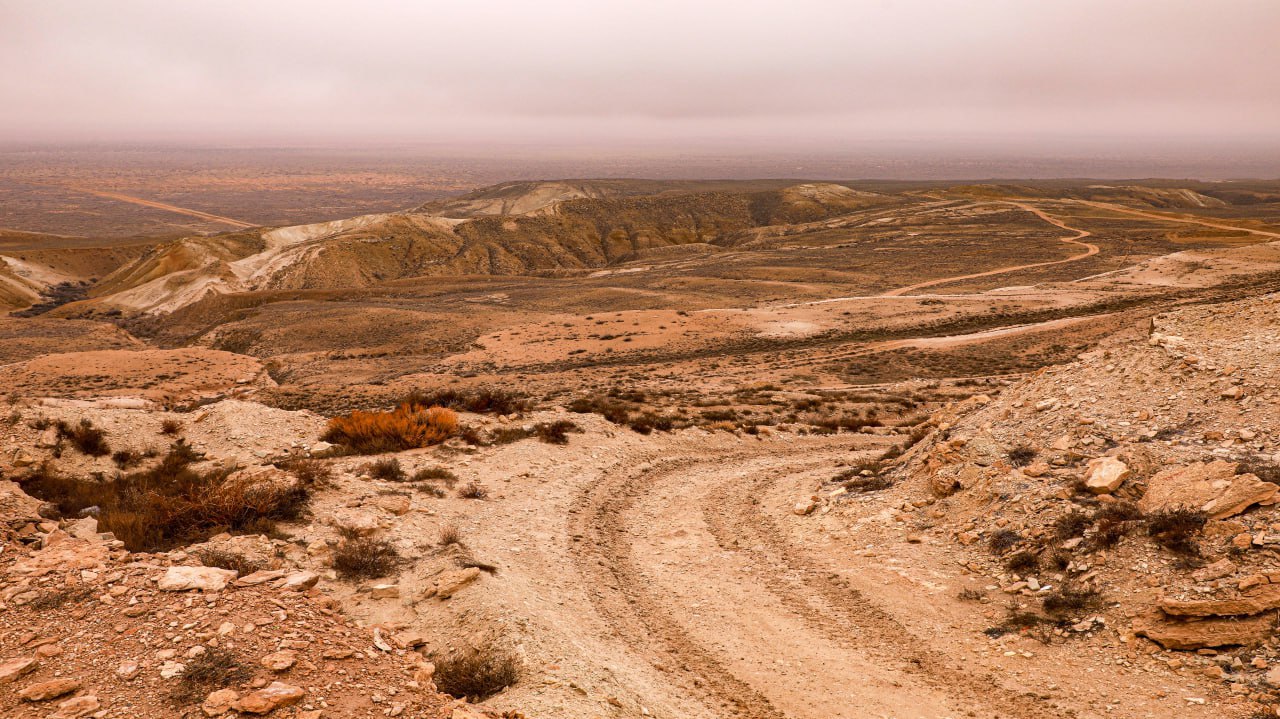
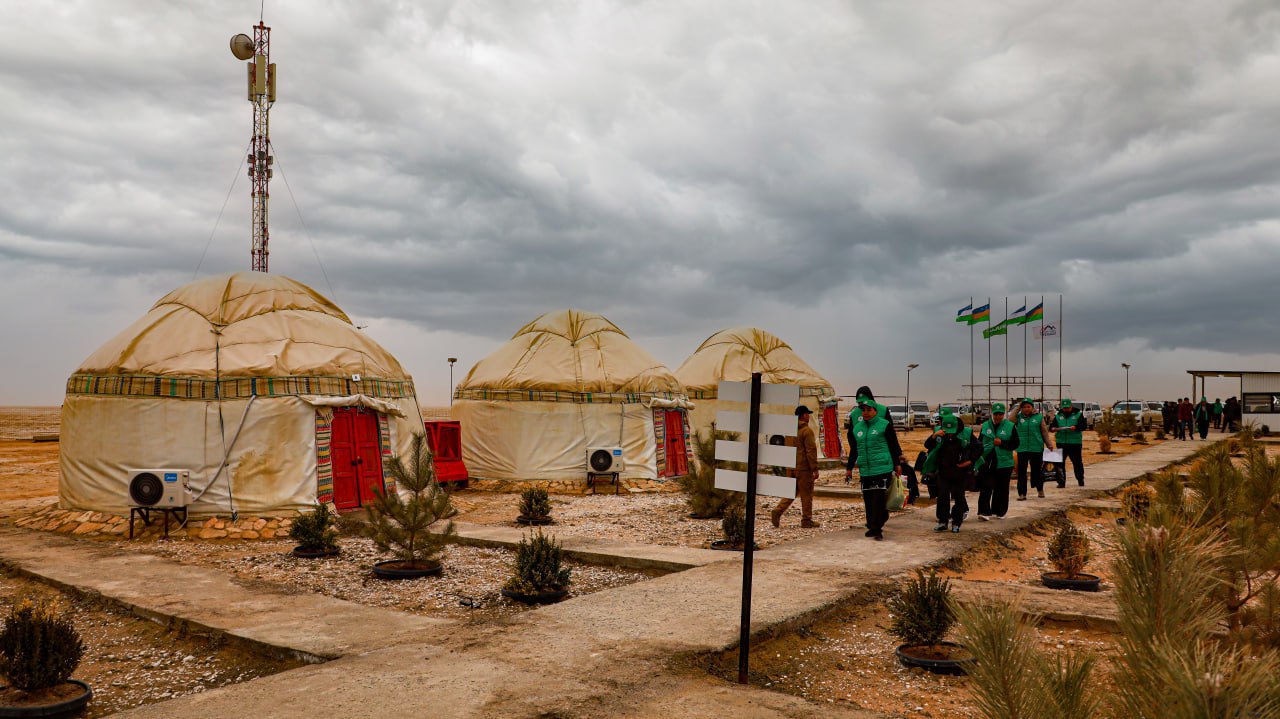 The Federation of Trade Unions of Uzbekistan, in collaboration with the International Labour Organization for Eastern Europe and Central Asia, organized an international scientific and practical conference held on March 25-26 of this year at the children's health camp "Oq Kema" in the Muynak district of the Republic of Karakalpakstan.
The Federation of Trade Unions of Uzbekistan, in collaboration with the International Labour Organization for Eastern Europe and Central Asia, organized an international scientific and practical conference held on March 25-26 of this year at the children's health camp "Oq Kema" in the Muynak district of the Republic of Karakalpakstan.
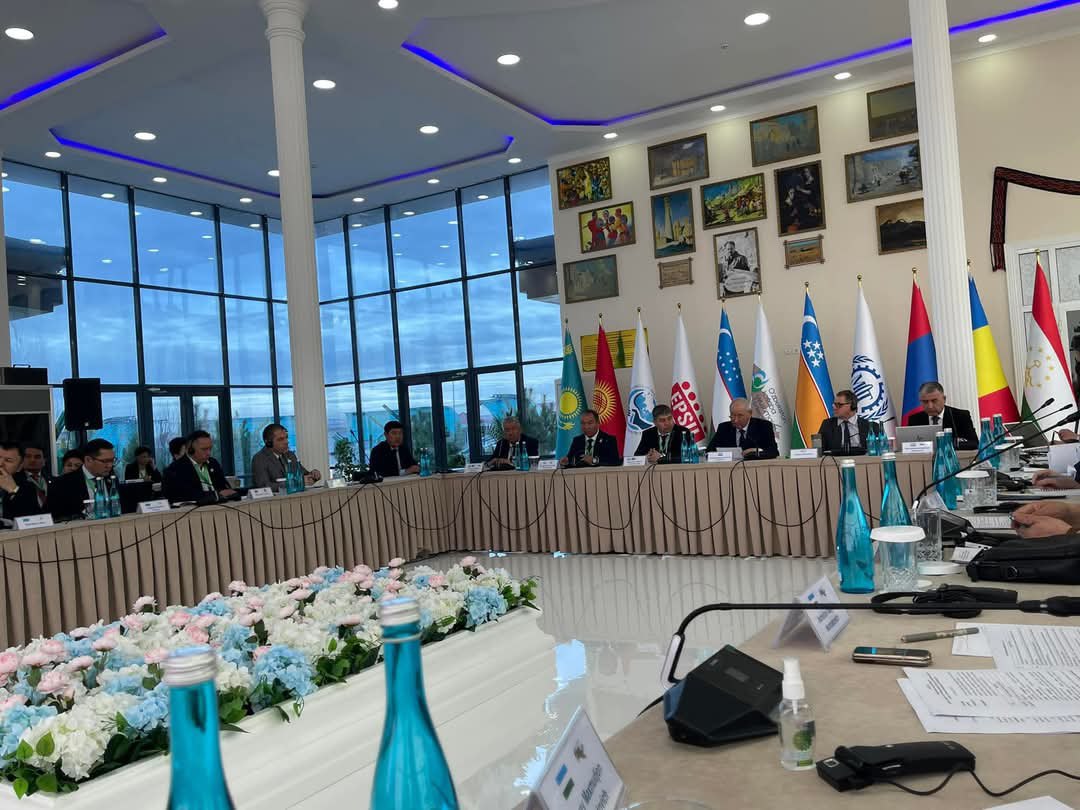 The conference, themed "Climate Change and the Aral Sea Crisis: The Role of Trade Unions in Ensuring Decent Work and Public Health," brought together representatives of trade unions from the healthcare, economics, and environmental sectors from Uzbekistan, Kazakhstan, Tajikistan, Kyrgyzstan, Mongolia, as well as representatives of non-governmental organizations.
The conference, themed "Climate Change and the Aral Sea Crisis: The Role of Trade Unions in Ensuring Decent Work and Public Health," brought together representatives of trade unions from the healthcare, economics, and environmental sectors from Uzbekistan, Kazakhstan, Tajikistan, Kyrgyzstan, Mongolia, as well as representatives of non-governmental organizations.
The main goal of this event was to introduce the participants to the large-scale creative work on forest reclamation on the dried-up bottom of the Aral Sea. An important part of the program was an appeal to the trade unions of the countries of Central Asia and Europe to assist in addressing the consequences of the environmental disaster.
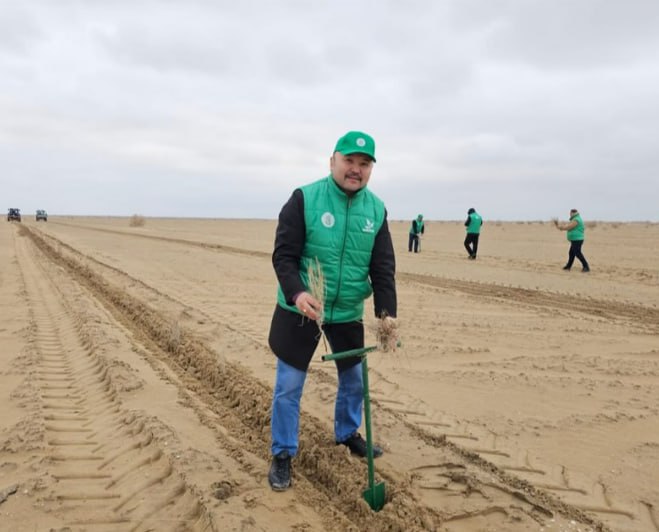 The participants of the event planted seedlings of desert plants on the shore of the shrinking Aral Sea, calling on society to be careful about the environment. This initiative not only served as an act of ecosystem restoration, but also became a symbol of hope for the revival of the region. It reminds us of our responsibility to preserve our natural heritage and the importance of unity in caring for the planet for future generations.
The participants of the event planted seedlings of desert plants on the shore of the shrinking Aral Sea, calling on society to be careful about the environment. This initiative not only served as an act of ecosystem restoration, but also became a symbol of hope for the revival of the region. It reminds us of our responsibility to preserve our natural heritage and the importance of unity in caring for the planet for future generations.
